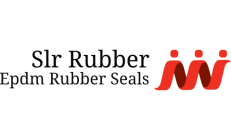Industrial seals play a critical role in various sectors, serving as crucial components in machinery and equipment to prevent the leakage of fluids and contaminants, ensuring operational efficiency,
Industrial seals play a critical role in various sectors, serving as crucial components in machinery and equipment to prevent the leakage of fluids and contaminants, ensuring operational efficiency, safety, and longevity of industrial processes. These seals come in a diverse range of types, materials, and designs, tailored to specific applications and environmental conditions.
One of the primary functions of industrial seals is to create a barrier that prevents the escape of liquids, gases, or particles from one system or component to another. This is particularly essential in environments where different substances need to be kept separate, such as in hydraulic systems, automotive engines, and manufacturing machinery.
The design of industrial seals is highly specialized, taking into consideration factors like pressure, temperature, chemical compatibility, and the nature of the substances being sealed. Common types of industrial seals include O-rings, gaskets, lip seals, mechanical seals, and hydraulic seals, each with its own unique structure and application.
O-rings, for instance, are circular rubber or elastomeric seals that fit into grooves and create a tight seal between two mating surfaces. Gaskets are flat seals that are often made of materials like rubber, metal, or a combination of both, providing a flexible barrier between two stationary parts.
Lip seals, on the other hand, are dynamic seals commonly used in rotating shaft applications. They consist of a flexible lip that makes contact with the rotating surface, preventing the escape of lubricants and blocking the entry of contaminants. Mechanical seals are more complex and are widely employed in pumps and compressors, providing a highly effective and durable means of sealing.
Hydraulic seals are specifically designed for use in hydraulic systems, where they prevent the leakage of hydraulic fluid and maintain pressure. These seals must withstand high pressures and temperatures while remaining flexible and durable over extended periods.
Materials used in industrial seals vary based on the application requirements. Common materials include rubber, silicone, polyurethane, PTFE (polytetrafluoroethylene), and various metals. The selection of materials is crucial in ensuring resistance to wear, chemical corrosion, and environmental factors.
Maintenance and replacement of industrial seals are essential aspects of equipment management to avoid leaks, reduce downtime, and extend the lifespan of machinery. Regular inspections, monitoring of performance, and timely replacement of worn-out seals contribute to the overall reliability of industrial systems.
In conclusion, industrial seals are indispensable components in numerous applications, providing a crucial role in maintaining the integrity of machinery and systems. Their diversity in types, materials, and designs allows for customized solutions to meet the unique challenges presented by different industrial environments. Effective sealing not only ensures operational efficiency but also contributes to safety, environmental protection, and the overall sustainability of industrial processes.

